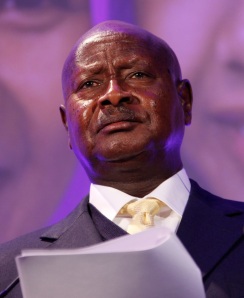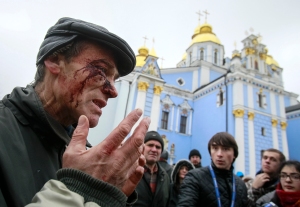While I may be enjoying my spring break in surprisingly windy Varna, others around the globe are far from thinking about holidays. Ukraine, Uganda, Pakistan, Afghanistan, Syria… Many more can be added to the list. However, for the sake of time and space, I chose to focus on the first two.
Today, March 3, is Bulgaria’s biggest and most joyful national holiday – it is 136 years since the liberation from the Ottoman presence in 1878. Today, we celebrate freedom, independence and long-awaited peace. At the same time, about 500km east by sea, people in Ukraine are fighting for their lives and future. They have been suffering for over three months because of the clashes in government where officials could not reach common ground about a possible EU membership. And who took the hit in the battle between political interests? – the innocent citizens, who did not have any opportunity to say what they actually want.
At first, we all started pointing fingers at Ukraine’s politicians for allowing personal interests to interfere in public affairs. However, later on, the world began to guess the real reason for the mishaps: Ukraine’s dependency on Russia, and more specifically, on its President, Vladimir Putin. Ukrainian ex-president, Viktor Yanukovych has always tried maintaining close ties with the powerful neighbor. He went as far as changing the constitution to give more authority to his presidential position and thus, be able to closely control the country’s internal and external affairs. Some say that the whole reason lies within the natural gas trade coming from Russia, to which Putin can put an immediate halt if Ukraine does not follow his demands. What baffles me with this point of view is how can one man influence a whole nation? A nation that is not even within his jurisdiction. Will Ukrainians continue to suffer because of Putin’s need for reinforcement? Moreover, is it fair to let this continue?
Others take an opposite stand, saying that what happens now in Ukraine is an aftermath of the Russian-American race for power. Unfortunately, this question is not even close to getting answered by world powers, so I will conclude my analysis with a paraphrase of what US Secretary of State, John Kerry, said last night on CNN news: it’s a shame for Russia after all the efforts and almost $60 billion they threw on the Olympics to create a positive image before the world.
The second country that recently blew the minds of people is Uganda. President, Yoweri Museveni, approved and passed one of the most controversial anti-humanitarian laws in the 21st century: an anti-gay law, that includes the death penalty as a punishment for any display of or engagement in gay behavior, thus interfering even in intimate sex relations. It didn’t take much time for the UN, the US, and many other countries that recently allowed same-sex marriages to stand against Museveni’s controversial law. Much was written and said about his policy: analysts say that the president wants to maintain his influence on the African continent, whose countries are primarily anti-homosexual. Museveni has been in power since 1986 and is running for office in the upcoming 2016 elections. It may be the presidential spot that he would have to sacrifice should he had rejected the legislation, but now he’s risking the lives of his own constituents. Museveni was multilaterally warned about the possible financial consequences that Uganda might face when major donors like the US and the UK withdraw their funding toward the African country. His reaction was to ask national and American scientists to research whether homosexuality was inborn or acquired in time, and since results testified for the former, the law passed. And now the World Bank is delaying $90 million for a project for the improvement of Uganda’s health sector, which aims at decreasing the number of deaths during birth. Again, I have the same question: is it worth risking the lives of the many for the interests of one?
The more I think about it, the more I am convinced that politics are generally chaotic. Nevertheless, they’re worth following and talking about, because we see in time that what has happened in the past deeply affects our future, regardless if it tackles with international relations or personal interests.


